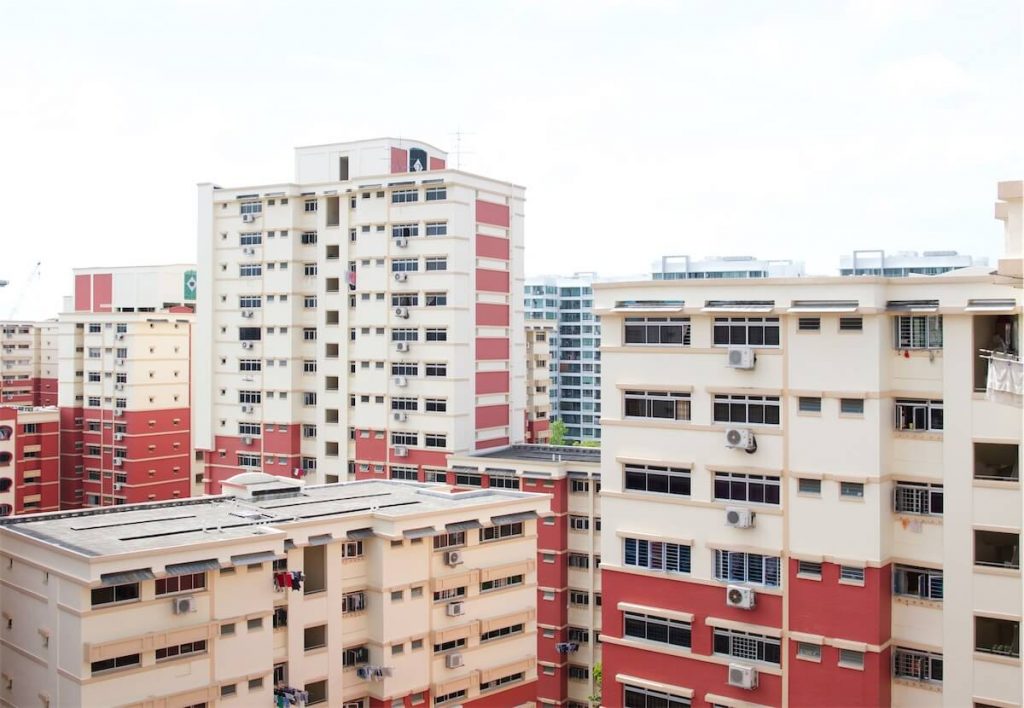Dealing with financial matters can be nerve-racking, especially if you’re not familiar with the jargon and terminologies. But rest assured you’re not alone — even those comfortable and fluent in the topic sometimes find it difficult to grasp certain concepts. To make it a lot easier for soon-to-be homeowners like you, we’ve made this handy guide to help you to navigate your mortgage purchase easily. Here are 6 common home loan terms you’ll find popping up quite often when applying for a home loan in Singapore.
6 home loan terms you should know when getting a property in Singapore
1. SIBOR
This is one of the terms you’ve probably come across during your research for a home purchase.
SIBOR stands for Singapore Interbank Offered Rate. Banks in Singapore use SIBOR as the interest rate when they lend funds to each other. This interest rate is determined through the interaction of the banks.
Here’s a table of the SIBOR rates during the COVID-19 pandemic:
| SIBOR rate as of 28 Dec 2020 | |
|---|---|
| 1-month SIBOR | 0.25167% |
| 3-month SIBOR | 0.40542% |
| 6-month SIBOR | 0.59338% |
| 1-year SIBOR | 0.81158% |
Banks usually price their mortgage loans based on the SIBOR rate. But, there’s an additional spread to it. For one, a mortgage loan may be offered at 1-month SIBOR + 0.80%. This spread of 0.80% is the bank’s margin, and different banks can offer consumers the best SIBOR home loan rates by adjusting their spread.
Check out the latest SIBOR rate here.
2. Fixed-rate
Fixed-rate is an interest rate that remains the same during the fixed term. For instance, a fixed-rate mortgage means that you can look forward to an unchanging interest figure on your monthly instalments during the fixed term.
Given that fixed rates are more stable and predictable, you can allocate your monthly budget to repay your home loan and manage your finances easily.
However, do note that floating or variable rates will kick in once the loan term for your fixed-rate ends.
Here’s a table to compare fixed-rate and variable-rate:
| Fixed-rate | Floating or variable rate |
|---|---|
| Interest rate is fixed and will not change during the fixed term | Rate varies and is generally tied to a reference rate, e.g. fixed-deposit rate, SIBOR, SOR, SORA, or an internal rate determined by the bank |
| No change in rate even when market rates fall | Interest payable moves with reference rate, and vice versa |
| After the fixed-rate period, floating or variable rates comes in | – |
If you’d like to continue with a fixed loan again, you’ll need to specify this when you refinance your loan.
We cover more about the different types of mortgage rates here.
3. Home loan lock-in period
A lock-in period is a period of time where your loan is “locked-in”. The window of time varies depending on the home loan package you choose. It could last anywhere between one to five years, and it typically begins when the bank disburses the loan.
If you end your home loan within the lock-in period, there is usually an exit penalty. Most banks set their exit penalty at 1.5% of the outstanding loan amount.
People usually get variable loan packages with a lock-in clause as they tend to be cheaper. If you do not intend to refinance within a short period of time, the lock-in clause is usually insignificant.
One key thing to note is that if you’re on a fixed-rate loan, you’re almost always considered locked-in during the fixed loan period. For example, you’ll be in a lock-in period of 3 years if your fixed-rate is a 3-year loan term.
4. TDSR
TDSR refers to the Total Debt Servicing Ratio. It was introduced by the Monetary Authority of Singapore (MAS) to ensure that you do not borrow more than what you can afford. In 2013, about 5% to 10% of Singaporean mortgage-holders were over-stretching themselves by borrowing more than they can manage.
Applicable to both private and HDB properties for refinancing and new property purchases, TDSR is determined by calculating the percentage of your gross monthly income that can go towards servicing your home loan.
As of 2020, the TDSR limit is set at a maximum of 60%. This means that all your debt obligations, from car loans, personal loans, student loans, must not exceed 60% of your gross monthly income.
To calculate your TDSR, divide your total monthly debt obligation by your gross monthly income. For example, if your monthly salary is $5,000 per month, your TDSR threshold is $3,000 (60% of $5,000). If you have a monthly debt obligation of $1,500, and you want to apply for a property loan, the maximum monthly repayment you can afford on the home loan is $1,500 ($3,000 – $1,500).
5. MSR

Mortgage Servicing Ratio, or MSR, is a limit imposed by the MAS on how much you can take out on loan to buy a HDB or new EC. It serves the same purpose as TDSR, in which it helps you find out your loan eligibility and ensures that you do not borrow more than you can manage.
The only difference between TDSR and MSR is that MSR only applies to HDB property buyers and ECS buyers, whereas TDSR applies to all property loans, regardless of public or private.
Under the MSR, you can use a maximum of 30% of your gross monthly income to repay your housing loan. Do note that your monthly employee contribution credited into your CPF account counts towards your gross monthly income. On the other hand, your employers’ CPF contributions do not.
To calculate your MSR, simply multiply your gross monthly income by 30%. Let’s say your gross monthly income is $5,000. 30% x $5,000 = $1,500. This amount is the maximum you’re allowed to spend on your monthly repayment for your home loan.
We compare in detail the differences between TDSR and MSR here.
6. Mortgage insurance

If you’re unable to pay off your home loan, mortgage insurance can give you the financial coverage you require. You can claim against your insurance, and your insurer can help you pay off your home loan.
Getting mortgage insurance in Singapore is definitely a worthwhile consideration as your home loan will most likely be your biggest liability. This insurance policy protects your assets and your family in case of unexpected events.
Coverage you can expect with mortgage protection insurance includes:
- Death — in the event of death, the outstanding mortgage and remaining insurance payout will go to the estate of the deceased.
- Total Permanent Disability (TPD) — if you’re unable to work due to serious illness or injury, your loan repayments will be taken care of.
- Terminal Illness — your family will receive a lump sum amount that’ll help pay off the mortgage.
If you’re buying an HDB property using your CPF savings, note that you should have automatically opted into mortgage insurance in the form of the Home Protection Scheme (HPS). If not, you can still apply to join the HPS, though it’s not compulsory. Alternatively, you may look for your own mortgage insurance policy with private insurance companies.
If you’re getting a private property and EC, you won’t have mortgage insurance unless you sign up for a private policy.
Find out how you can upgrade from an HDB flat to an EC here.
Who you can engage to help you get the best home loans in Singapore
A house is probably one of the biggest purchases you’ll make in your lifetime. A sizeable chunk of your wealth will likely be spent on repaying your home loan. So when deciding to purchase a property, it’s important that you get all the help you need.
You can engage the following to help you through your process:
- Mortgage broker
A mortgage broker can help facilitate your home loan application by connecting you to the best loan deals, and terms banks that the financial institutions have to offer.
Depending on your financial situation and loan needs, they can narrow down and recommend the best loan products in Singapore for you.
- Conveyancing lawyer
You will need to engage a conveyancing lawyer to act for you and also to go through your loan contract’s terms and conditions and advise you accordingly.
Your conveyancing lawyer can also conduct background checks and send out legal requisitions on your behalf, exercise and stamp the option to purchase and help you get your paperwork in order.
- Pest inspector
It’s best to arrange a pest inspection to ensure that the property you’re buying is not infested with termites or other bugs that could expose you to unexpected expenses.
- Insurance agent
An insurance agent would be helpful in advising you on the types of insurance and coverage that would offer you the best protection as a homeowner.
Having a strong foundation of financial literacy can help you with your goals in various life stages. For example, saving for education or retirement, managing your finances for a wedding, or getting the best home loans in Singapore. We break down bank jargon for offer letters here.

Here at FinanceGuru, we seek to help you better prepare for your finances and the upcoming milestones in your life. Get a non-obligatory assessment and loan product recommendations here.







